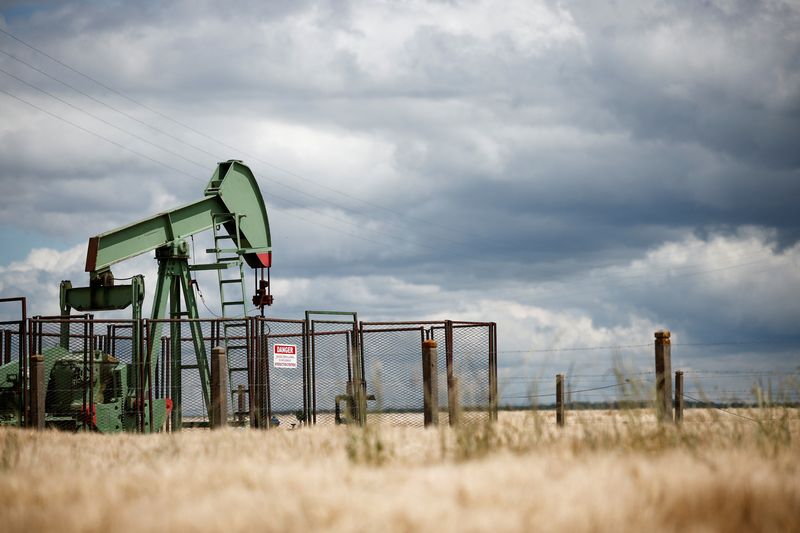
By Florence Tan
SINGAPORE (Reuters) – Oil prices fell for a second day on Monday as the dollar gained ground amid political uncertainty in the U.S. following an attack on U.S. presidential candidate Donald Trump while investors eyed the progress of talks for a Gaza ceasefire.
Brent crude futures fell 55 cents, or 0.7%, to $84.48 a barrel by 0109 GMT after settling down 37 cents on Friday.
U.S. West Texas Intermediate crude was at $81.65 a barrel, down 56 cents, or 0.7%.
The dollar firmed on Monday while U.S. bond futures slipped as investors wagered the attack on Trump made his victory in the upcoming presidential election more likely. [MKTS/GLOB]
“The (U.S. dollar) is expected to be a beneficiary of the assassination attempt on former President Trump as it increases the chances of his re-election,” said IG market analyst Tony Sycamore.
A stronger dollar tends to lower oil prices as buyers using other currencies have to pay more for their dollar-denominated crude.
Last week, Brent fell more than 1.7% after four weeks of gains while WTI futures slid 1.1% as weak oil demand in China, the world’s top importer, countered robust summer consumption in the U.S.
China’s crude oil imports fell 2.3% in the first half of this year to 11.05 million barrels per day amid disappointing fuel demand and as independent refiners reduced production due to weak profit margins.
The country is expected to release data on Monday showing that its economy likely slowed in the second quarter as a protracted property downturn and job insecurity weighed on domestic demand, keeping alive expectations Beijing will need to unleash more stimulus.
In the Middle East, talks on ending the Gaza conflict between Israel and Hamas halted on Saturday after three days, though a Hamas official said on Sunday it has not withdrawn from discussions. At the same time, an Israeli attack targeting the group’s military leader killed 90 people on Saturday.
The uncertainty around the volatile situation has kept the geopolitical premium in oil elevated.

The U.S. active oil rig count, an early indicator of future output, fell by one to 478 last week, the lowest since December 2021, energy services firm Baker Hughes reported on Friday.
Still, oil markets are broadly underpinned by supply cuts from OPEC+ with Iraq’s oil ministry saying it will compensate for any oil overproduction since the beginning of 2024.
This post is originally published on INVESTING.


